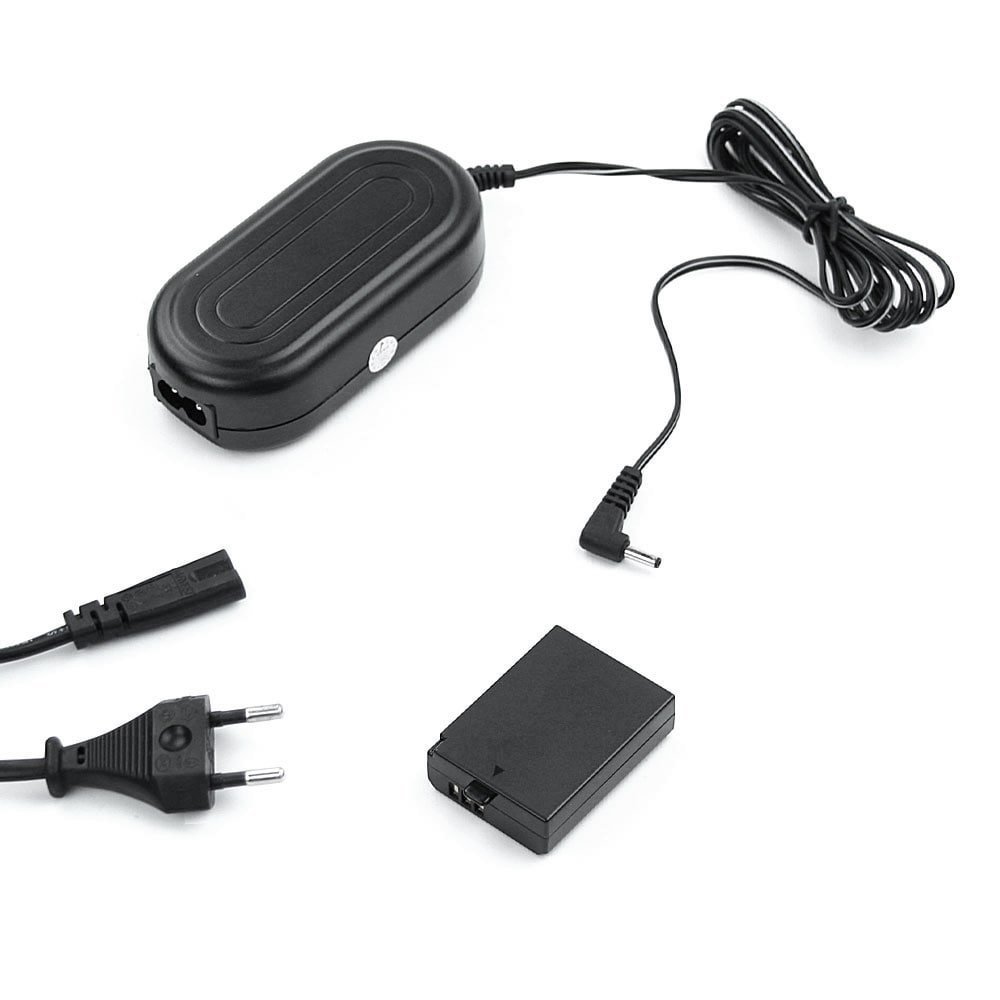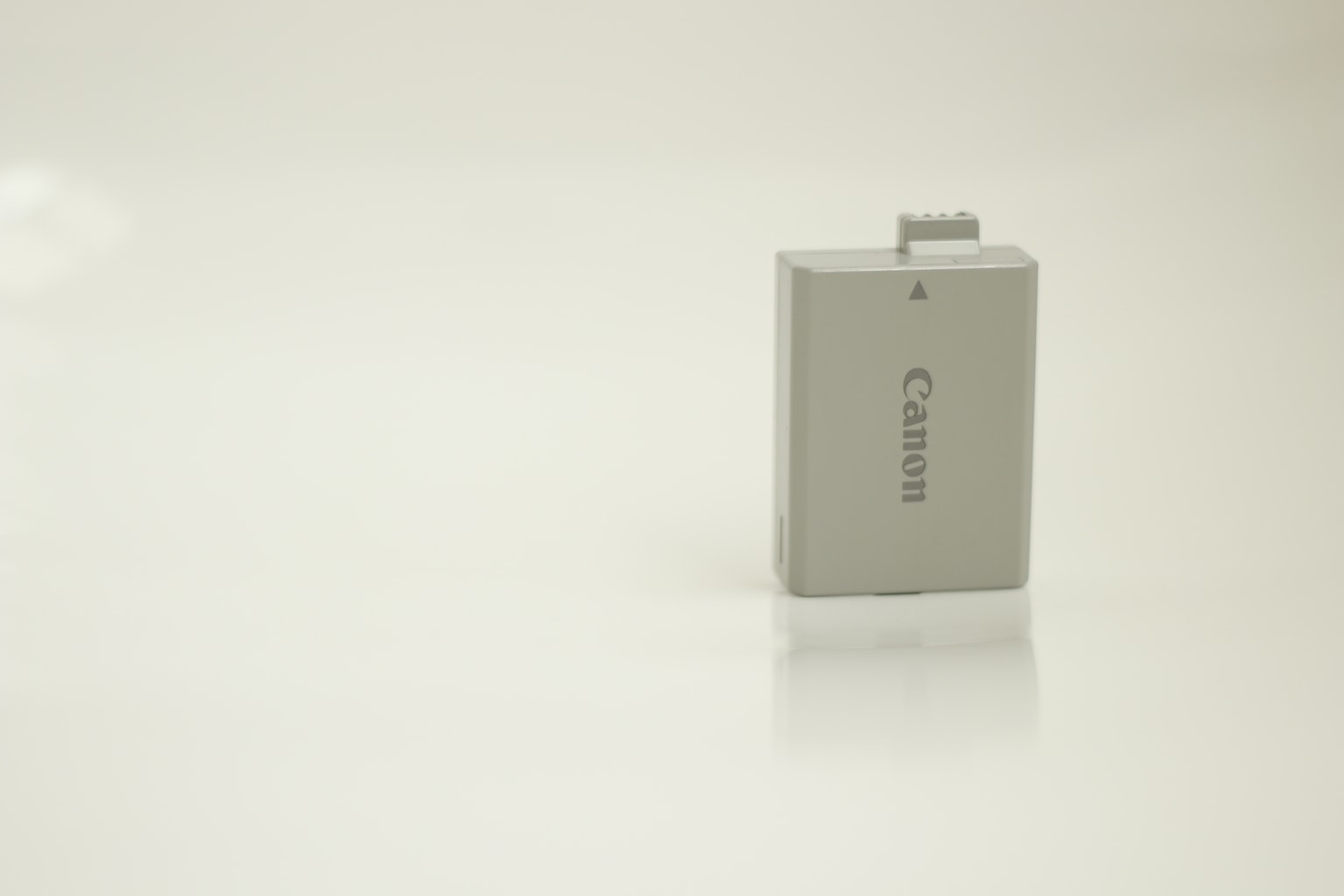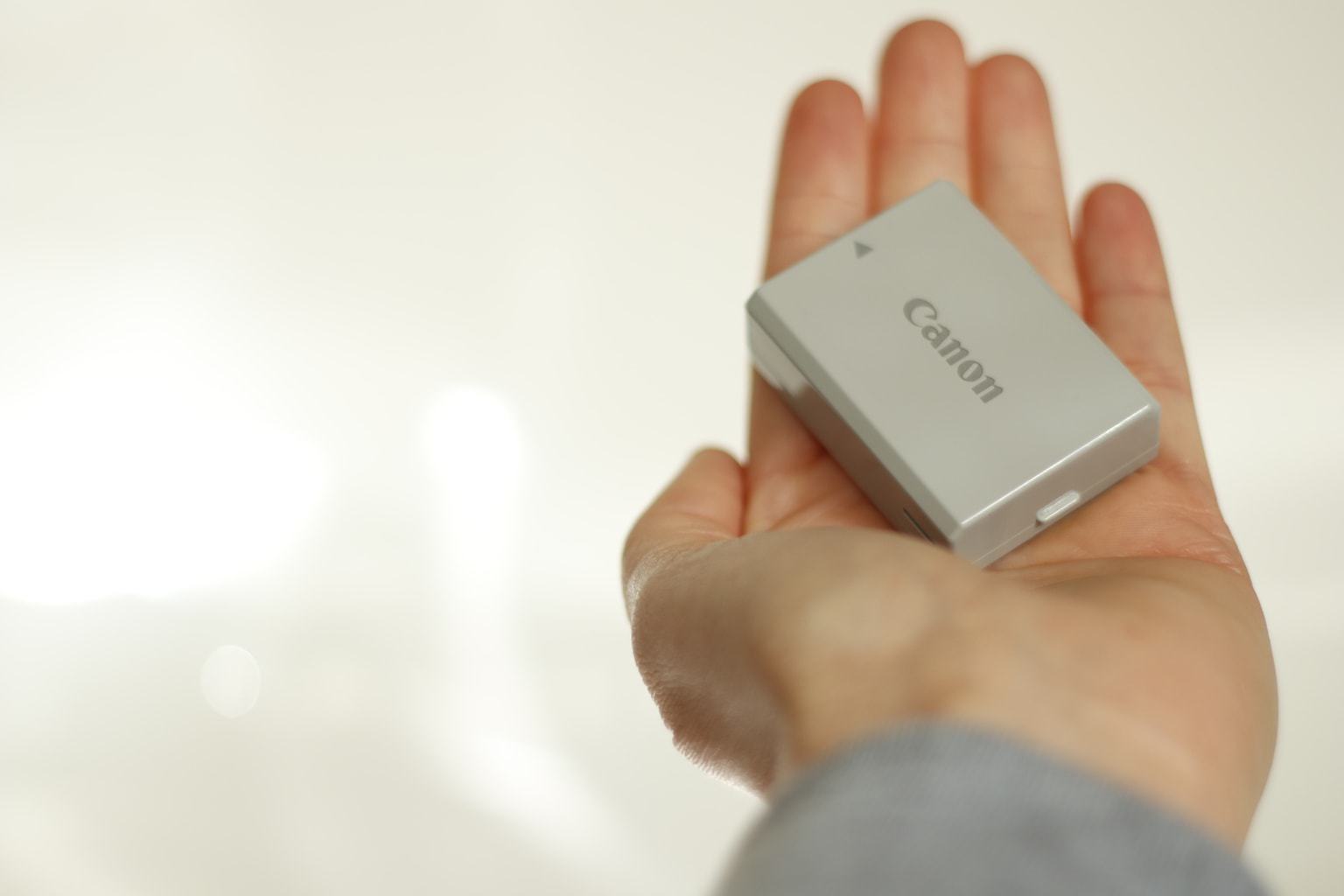Are you looking for a replacement camera battery? Are you not sure which battery to buy? Maybe your budget is tight but you don't want to risk it?
You may have started watching and got a little dizzy. Or that you have doubts about whether or not to buy a second battery. Or about whether to buy it original or compatible .
Normal, these doubts usually arise before any type of purchase. That is why today I bring you some keys to clarify your ideas on this topic. You already know that in Blog del Fotógrafo we like to make things easier for you ;).
But if what you are looking for is an external battery, because you need to go a step further when it comes to charging all your devices in the photographic outings, do not miss the article at the link.
WHY IS A REPLACEMENT BATTERY NECESSARY?
Before I go any further, I'll tell you why it's a good idea to have a second battery. See, nobody likes to find themselves in the situation of going to shoot and having their camera screen go black and die momentarily, right? Can you imagine what happens to you in the middle of your son's birthday because with the preparations you have forgotten to charge it? Or you go on a trip and since you don't have anywhere to charge the battery you miss that wonderful sunset next to the Taj Mahal. Or almost worse, you want to immortalize your baby's first smiles and it turns out that your camera battery is more than exhausted.
Little disappointments, right? Some people are so farsighted that this would never happen to them (or yes, because the battery might break and you couldn't anticipate that unless you had a spare ;P). Others, however, are more into putting out fires, we have a thousand things on our minds and we find ourselves in many similar situations. Therefore, it is best to have a second battery on hand, so you don't run out of your photo/s.
IN WHICH SITUATIONS IS IT MOST NECESSARY TO HAVE A SPARE BATTERY?
There are those who work with a single battery and have no problem (until it hits them, of course, but just as the camera can crash at the end of its days;)). However, for some types of photography or some types of photographer, it becomes almost essential. What are these cases? Let's see them:
- Travel photography : when you go on a trip you don't know how many situations worth photographing you're going to find (you anticipate that many, but you don't know ? ) or what possibilities you will have before returning to your accommodation. And that taking into account that you have planned your trip well and brought a suitable adapter for electrical current.
- Event photography: in these cases it is not about arriving at a site and taking one or more photos, it is about capturing a lot of stories, gestures, moments. It is a non-stop shooting, very likely that the battery runs out before the event ;).
- Long Exposure Photography : A large amount of energy is consumed with this type of photography. If you are going to do a light painting session , or look for the silky effect of water, for example, you will have to bring a spare battery or the session will very likely end earlier than desired.
- Video recording: that's right, the video consumes a lot of battery, so if the greatest use of your camera is for recording video, you will have no choice but to have extra batteries or use this trick that I will tell you about below as an alternative .
In addition to these types of photography or recording, there are functions that require a lot of energy, these are:
- Live View mode
- Wireless connections (Wifi, Bluetooth and GPS)
Finally, the weather also influences. With the cold your batteries will last much less. If you live in a very cold place, you are going to spend a long time in a Nordic country, or you are going to dedicate yourself (for whatever reasons) to photographing in the snow, do not hesitate, always have a spare battery on hand.
CLONE OR ORIGINAL BATTERIES?
This is another eternal debate. Maybe we should consider making a second part of photographic dilemmas ? . Some people are clear that they would not take the slightest risk in buying a battery that was not from the original brand. There are also those who would not even pay the price of an original to have it as a spare. But, luckily, there are also those of us who see gray tones ;). Sometimes it is better to see all the possibilities and analyze.

There are all kinds of experiences, there are those who have had an original fail and have never had problems with a compatible brand, and there are also those who have had the opposite experience. It is clear that this is not a fixed rule.
Advantages of the originals: the guarantee. If an "original" brand battery fails you, you know who you have to turn to, there is a renowned brand behind it to answer.
Advantages of the compatible: the price. In some cases even much cheaper but, more or less, they are always cheaper.
Everyone decides how much they can risk or how much they can spend. There are compatible brands that are known and that, in principle, do not have to cause any type of problem and are cheaper than the original ones, offering a very similar result.
Here are some brands that usually work well:
- Duracell: For Canon, Nikon, sony, Fujifilm, Pentax…
- Patona: For Canon, Nikon(or this other premium), sony, Fujifilm, Pentax
You also have, for example, these that have very good reviews on Amazon:

Important note: Even if they are for certain brands, always check that it is compatible with your camera model ;).
ALTERNATIVE TO SPARE BATTERY
If you record a lot of video indoors (or outdoors but with an electrical outlet close at hand), you have this alternative to avoid changing batteries, it is a power supply that allows you to record while it is plugged into the current. Like, for example, thiscompatible with some Canon models (also for Nikon, sony, Pentax).
WHEN NOT TO PLAY IT?
Like everything in life, everyone makes their own decisions. But since the idea is to advise those who are most lost, I will give you very clear advice. If you have a very expensive camera in your hands, whether you are a professional or not, don't risk it. If you have paid 2000 euros, for example, for your SLR, wouldn't it be better to pay around 80 euros for an original battery and not put the camera at risk? I understand that if you have a 350-euro SLR it seems excessive to pay almost a quarter for a battery, but in the other case... I would think about it.
Another story is those brands that are so cheap that they make you doubt. Just as I wouldn't buy a twenty cent a liter gel for my skin, I wouldn't put a ridiculously priced battery in my camera. They are personal decisions, of course, but... sometimes cheap is very expensive.
TRICKS TO MAKE YOUR BATTERY LAST LONGER
Well, you already know that we are very generous on the blog, so I am also going to give you some tricks to stretch your battery as much as possible and, when you see that you only have one hairline left and many hours ahead to photograph, don't panic ;).
- Turn off the flash: better use it only in strictly necessary cases, the flash consumes a large amount of energy. Try raising the ISO, getting closer to any light source, etc., but avoid shooting with it.
- Turn off your camera only when you anticipate that you will be more than 10 or 15 minutes without using it: continually turning it on and off can waste more energy than save.
- Minimize or avoid the use of Live View : As I have told you before, this function uses up a lot of battery.
- Think about the shots: there is no need to re-time the shots like when you had a 36 reel and each shot cost you a little money. But it is convenient that you control the avidity of your finger when shooting and reflections before pressing the button. Better less shots now and have a chance to shoot later than to get excited and stay with zero battery.
- Deactivate everything you can: image stabilizer, autofocus, sensor cleaning... Everything that the camera does extra also consumes extra battery. Better turn off all automatic functions and those you don't really need.
- Avoid recording on video: that said, the video is another of the functions that consumes a lot of battery. If it is not very necessary, forget about it.
- Say goodbye to wireless connections: turn off bluetooth, Wi-Fi and GPS. Unless you have to send your location in some way so that Salvamento comes to rescue you urgently, turn them off ? . Or you will see how you lose shooting possibilities along the way.
TRICKS FOR MAINTAINING YOUR BATTERIES
And since I am going to tell you about some tricks to maximize battery life on your outings, I am also going to tell you about others for its maintenance:
- Try to buy batteries of the same power as the original.
- If you use a grip with two batteries , make sure they are the same, either the two clones or the two originals, but like batteries with different charges, it is better not to mix them, for some reason it does not usually work well.
- Protect them from the cold. When it is very cold, the batteries last much less. In these cases, keep the spare ones attached to your body. And, if you're going to spend a long time without shooting, the camera's too.
- Organize your batteries well: to avoid mistakes and confusion, if you have several batteries, I recommend that you label them in some way.
And here is today's article on batteries, I hope I have clarified your doubts. And if I have created new ones for you, do not hesitate to leave them in the comments. We will be happy to solve them. To learn more about photo accessories and buying tips, don't miss this mega guide.
If you found it useful, remember that some of your contacts may also find it useful. Show your generosity and share this information. Thank you, I hope to see you here soon!


